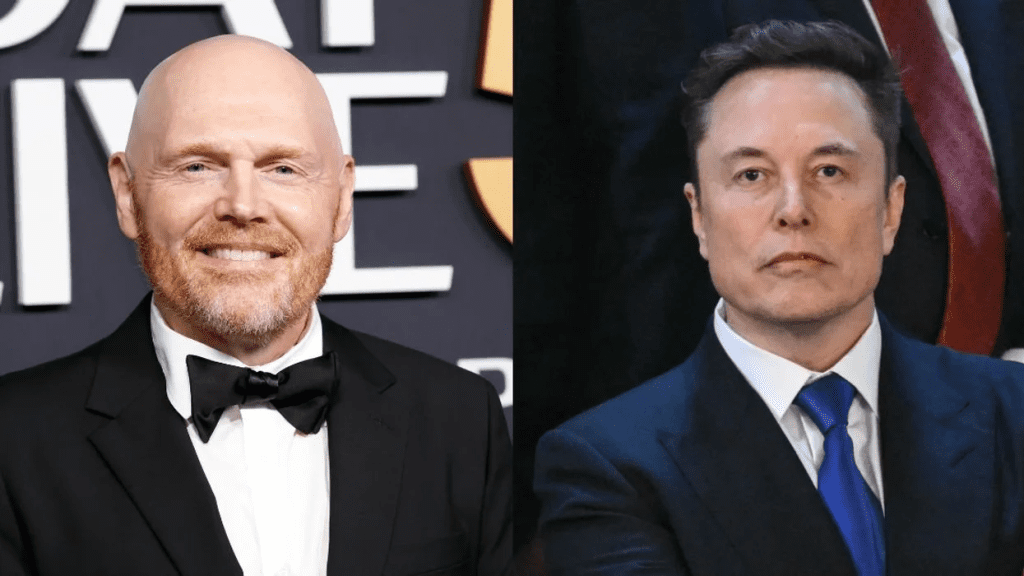Bill Burr continues to stand out in the comedy landscape, aging gracefully into a comedian who maintains relevance, biting humor, and a clear-eyed view of societal dynamics.
In an era where comedy is increasingly influenced by political polarization and celebrity connections, particularly exemplified by the influence of the “Rogan sphere,” Burr emerges as a refreshing voice of genuine satire, focusing his wit toward genuine targets of power rather than marginalized communities.
Comedy traditionally thrived as a medium for punching upward, challenging power structures and influential figures, embodying the spirit of legendary comedians such as Bill Hicks and George Carlin.

These comedians pushed boundaries, not merely for shock value but with a purpose—mocking the powerful and critiquing systems that oppressed everyday people.
Carlin’s critiques of capitalism and Hicks’s unapologetic takedowns of political hypocrisy set a high bar for comedians who wished to wield humor as a tool for social commentary.
However, recent shifts, notably influenced by the “Rogan sphere,” have inverted this dynamic. The comedic focus has shifted away from powerful figures, instead targeting groups with little societal power—college students, minority communities, and vulnerable populations.
Figures like Joe Rogan, Andrew Schultz, and others within their orbit have aligned themselves closely with influential right-wing figures and billionaire elites such as Donald Trump and Elon Musk.
Rather than offering a voice to challenge the status quo, they have increasingly become part of it, blunting comedy’s traditional edge.
Bill Burr, however, remains an outlier, steadfastly refusing to join this troubling trend. His recent interviews and performances underscore his commitment to pointing out the absurdity of powerful individuals and systems.

In a recent interaction highlighted by NPR, Burr took aim explicitly at Elon Musk, labeling him straightforwardly as “evidently a Nazi” after Musk’s controversial repeated Nazi-style salutes.
Burr humorously but seriously highlights the absurdity and danger of excusing such behaviors under the guise of eccentricity or misunderstanding due to autism, as Musk’s defenders frequently claim.
Burr’s critical commentary comes at a crucial time when Musk has publicly aligned himself with controversial figures and repeatedly shared or engaged with openly far-right, Nazi-affiliated content online.
Burr refuses to downplay Musk’s actions as accidental or benign, recognizing the broader implications of normalizing such dangerous behaviors.
His humor targets the willful ignorance and complacency of those who refuse to see Musk for who he is—a powerful billionaire whose actions consistently flirt with extremist ideologies.
Furthermore, Burr criticizes the passivity of liberals who, instead of confronting threats from figures like Musk, often retreat into performative outrage or disengagement.
He humorously mocks the typical response of liberals threatening to leave the country over political figures they oppose, questioning why they would abandon their communities rather than fight back.

Burr’s comedy thus serves as both a critique of problematic individuals and a wake-up call to those who oppose them but choose ineffective means of resistance.
The comedian’s frankness extends beyond Musk, serving as a broader critique of contemporary American politics and societal complacency. Burr advocates strongly for active resistance and critical engagement rather than passive lamentation.
His straightforward calls to action—”Deport Elon Musk” evolving humorously into “Arrest Elon Musk”—underscore his frustration with a system that permits blatant criminality and fraud from elites while punishing minor transgressions among everyday citizens.
Burr’s commentary is particularly powerful because it cuts through the polite veneer of political dialogue. Unlike comedians who attempt to walk tightropes to appeal broadly or ingratiate themselves with influential power players, Burr remains fiercely independent, unafraid to lose favor with either side.
He is unapologetic about calling out hypocrisy and corruption, especially in powerful figures who have historically escaped meaningful scrutiny due to their wealth or influence.
In the modern era of comedy shaped by podcasts, social media, and streaming platforms, Burr’s steadfast refusal to cater to elite or reactionary sensibilities positions him uniquely.
He occupies a rare space in comedic discourse, a comedian who challenges audiences across the political spectrum to look critically at power and privilege rather than playing comfortably within accepted boundaries.

While his comedic peers cozy up to power structures, Burr embodies the essence of classic comedic critique, attacking the powerful, defending the powerless, and doing it with sharp wit and unfiltered honesty.
This approach is vital in a political and media landscape where nuance and truthfulness often take a back seat to sensationalism and populist pandering.
Burr’s humor serves as a refreshing antidote, emphasizing the importance of truth and accountability over popularity and alignment with powerful figures.
He cuts through noise and distraction, reminding audiences that genuine comedy, at its best, serves as a force for societal reflection, critique, and ultimately, change.
As conversations about the role of comedy continue to evolve, Bill Burr’s consistent, fearless approach provides a template for what comedy can achieve when it remains true to its roots—challenging power, exposing hypocrisy, and providing a voice for those typically overlooked or silenced by mainstream discourse.
In an era desperate for authenticity and courage, Burr remains a comedian worth celebrating and emulating, proving humor is not just entertainment but also a powerful social tool capable of inspiring change and fostering critical reflection in society.


